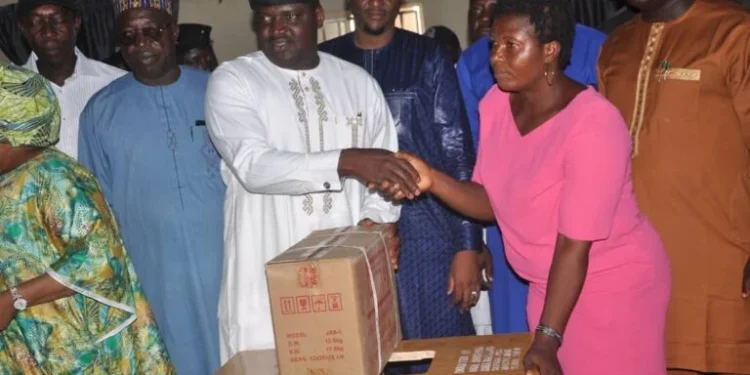The Abuja Municipal Area Council (AMAC), has distributed 100 sewing machines and 100 grinding machines to women in the communities to enhance their productivity.
Distributing the items on Thursday at the AMAC Town Hall in Apo, Abuja, the Council Chairman, Christopher Maikalangu, urged the beneficiaries to make judicious use of them to support their family.
The News Agency of Nigeria (NAN) reports that the empowerment programme is part of the council’s broader strategy to lift women out of poverty through legitimate business endeavours.
NAN reports that the initiative follows previous efforts by the council, which includes distribution of various tools and equipment to youths.
Maikalangu stressed that the empowerment materials should not be sold or diverted, but used to engage in meaningful ventures that would benefit families and the community.
He praised the Women Development Division of the council, for its role in the initiative, underscoring the council’s dedication to supporting vulnerable populations within AMAC.
“Today, we distributed 100 sewing machines and 100 grinding machines.
“We are coming up with another empowerment programme soon, which is providing physical cash to help women engage in various businesses like charcoal sales and food vending,” he said.
Addressing questions on the quality of ongoing projects in AMAC, Maikalangu affirmed his hands-on approach to supervision, adding that he forced contractors back to the sites when projects were substandard.
“I personally inspect all construction stages. If a job is substandard, I insist on corrections before payment,” he said
On her part, the PDP National Woman Leader, Mrs Amina Aron, emphasised the importance of women’s economic empowerment and participation.
In an interview with journalists, she highlighted four critical areas for women’s development, which were education, economic empowerment, health, and political representation.
She urged the beneficiaries to utilise the resources provided to them effectively.
She also pledged to provide a wheelchair for a disabled woman at the event, underscoring her commitment to supporting women’s independence.
One of the beneficiaries, Miss Cecilia Luka, a person living with disability, appreciated the Chairman’s gesture.
She said the gesture would help to provide food to their tables and ease the burden of hardship in the country. (NAN)











